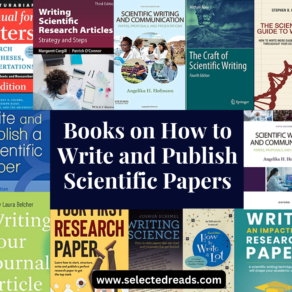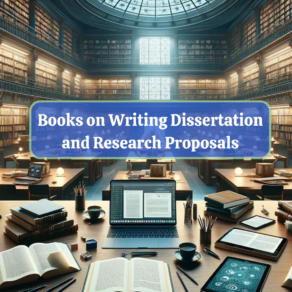Working on a literature review can feel like venturing into an intricate maze—there’s methodology, grey literature, style formatting guidelines, and so much more to master. That’s why I’ve curated a list of essential reads that serve as your personal map through this labyrinth. Whether you’re just dipping your toes into the concept or you’ve been crafting literature reviews for years, these books offer invaluable insights to make your work comprehensive a\nd impactful.
For those of you scratching your heads thinking, “What even is a literature review?”—don’t sweat it. Take a quick detour to my earlier post, “What is a Literature Review,” to get the 411. Trust me, once you’ve got the basics down, these books will help you elevate your game to the next level.
Books on How to Write a Literature Review
Here is our collection of some very good books on how to write a literature review
1. Published, by Thomas Deetjen
“Published” is a comprehensive guide that organizes the research process into seven clear phases, offering step-by-step instruction for each. The book is designed to take you through your research journey from the beginning to the end. It provides the clarity, direction, and encouragement you need to drive your project from the inception to the ultimate goal – publication.
2. Doing a Literature Review, by Chris Hart
“Doing a Literature Review” is a guide that illuminates the “what,” “how,” and “why” of literature reviewing. The book covers the literature review process from start to finish, introduces new chapters explaining different types of reviews and evidence evaluation, and offers extended examples for the application of key techniques and procedures.
The book couples a critical, philosophical approach with a selection of practical examples, equipping readers with both the intellectual understanding and the technical skills needed to produce high-quality literature reviews.
3. Doing a Systematic Review: A Student’s Guide, by Angela Boland (Editor), Gemma Cherry (Editor), Rumona Dickson (Editor)
“Doing a Systematic Review: A Student’s Guide” is a friendly, accessible manual from an expert team of authors with extensive experience in conducting and supervising systematic reviews.
The guide provides clear answers to all review-related questions, including formulating an appropriate review question, managing the review, developing a search strategy, getting started with data extraction, assessing the quality of a study, analyzing and synthesizing data, and writing up the discussion and conclusion sections of a dissertation or thesis.
4. An Introduction to Systematic Reviews, by David Gough (Editor), Sandy Oliver (Editor), James Thomas (Editor)
“An Introduction to Systematic Reviews” is a hands-on guide that focuses on using systematic review as a research method. The book provides clear, step-by-step advice on the logic and processes of systematic reviewing, emphasizing the importance of precision and accuracy.
The second edition introduces a new chapter on statistical synthesis and innovative approaches to research synthesis, including text mining, living reviews, and qualitative comparative analysis in mixed methods reviews.
The book is filled with examples from across the social sciences, making it an invaluable resource for students and researchers seeking to turn systematic reviews into policy recommendations.
5. Introduction to Meta-Analysis, by Michael Borenstein, Larry V. Hedges, Julian P. T. Higgins, Hannah R. Rothstein
“Introduction to Meta-Analysis” is written by four of the world’s leading authorities on meta-analysis. The updated edition presents an outline of meta-analysis in the research process, demonstrates how to compute effect sizes and treatment effects, and explains the fixed-effect and random-effects models for synthesizing data.
The book also helps in assessing and interpreting variation in effect size across studies, avoiding common mistakes in meta-analysis, and discussing controversies in meta-analysis. The book includes access to a companion website that provides step-by-step instructions for performing analyses using Comprehensive Meta-Analysis (CMA), along with additional resources.
6. Systematic Approaches to a Successful Literature Review, by Andrew Booth, Anthea Sutton, Mark Clowes, Marrissa Martyn-St James
This book is a practical guide to conducting literature reviews, offering step-by-step processes that work with any data. “Systematic Approaches to a Successful Literature Review” includes worksheets and decision aids to help plan and organize your literature review, worked examples and case studies for practical understanding, troubleshooting tips, and answers to frequently asked questions.
This edition also includes a new chapter on analyzing mixed methods research and provides online access to a literature review starter template, an exercise workbook, project diary template, and a source credibility checklist.
7. Conducting Research Literature Reviews: From the Internet to Paper, by Arlene G. Fink
Arlene G. Fink’s “Conducting Research Literature Reviews: From the Internet to Paper” provides an in-depth, accessible guide on how to synthesize research literature. It is an ideal resource for students, researchers, marketers, planners, and policymakers who are involved in designing and managing public and private agencies, conducting research studies, and preparing strategic plans and grant proposals.
The Fifth Edition of the book features new research, examples, and references from the social, behavioral, and health sciences, expanded coverage of qualitative research, updated and revised meta-analysis procedures, a new glossary of key terms, double the number of exercises, and additional examples of how to write reviews.
8. Systematic Reviews in Educational Research: Methodology, Perspectives and Application, by Olaf Zawacki-Richter et al
This open access edited volume brings together international researchers in the field of education to describe and discuss the systematic review method as it applies to research in education. Alongside fundamental methodical considerations, reflections and practical examples are provided, offering an introduction and comprehensive overview of systematic reviews in educational research.
9. Searching the Grey Literature: A Handbook for Searching Reports, Working Papers, and Other Unpublished Research, by Sarah Bonato
“Searching the Grey Literature is an invaluable guide for researchers interested in expanding their knowledge about grey literature. Whether you’re faced with your first grey literature search request or you’re an experienced searcher finding that your patrons are unfamiliar with this vast body of literature, this book can help.
Providing effective strategies for crafting successful searches and teaching about the importance of grey literature, it is an important resource for librarians and other information professionals.
10. Publication Manual (OFFICIAL) 7th Edition of the American Psychological Association, by American Psychological Association
“The Publication Manual of the American Psychological Association, Seventh Edition is the official source for APA Style. With millions of copies sold worldwide in multiple languages, it is the style manual of choice for writers, researchers, editors, students, and educators in the social and behavioral sciences, natural sciences, nursing, communications, education, business, engineering, and other fields.
Known for its authoritative, easy-to-use reference and citation system, the Publication Manual also offers guidance on choosing the headings, tables, figures, language, and tone that will result in powerful, concise, and elegant scholarly communication. It guides users through the scholarly writing process—from the ethics of authorship to reporting research through publication.”
11. The Literature Review: Six Steps to Success, by Lawrence A. Machi, Brenda T. McEvoy
“From daunting to doable in six steps, this book presents the process of literature review in a clear and straightforward manner. The authors walk students through every step of the process, including selecting a topic, searching the literature, developing arguments, surveying the literature, critiquing the literature, and writing the literature review.”
Final thoughts
As we round out this exploration of must-reads for crafting literature reviews, I can’t help but reflect on the transformative power of a well-executed review. It’s not just an academic exercise; it’s a meaningful contribution to your field, a way of synthesizing knowledge and creating a foundation for future research. Besides providing you with the “how-to”, these books delve into the nuances and complexities that make your review truly resonate.
I’ve personally found immense value in these resources, both in my days asa a doctoral student and in my current research work. The methodologies, guidelines, and tips covered are like an insider’s guide to academic writing. Whether you’re a newbie or a seasoned pro, having a collection of solid guidebooks can make the difference between a literature review that’s just okay and one that sets the gold standard.


















